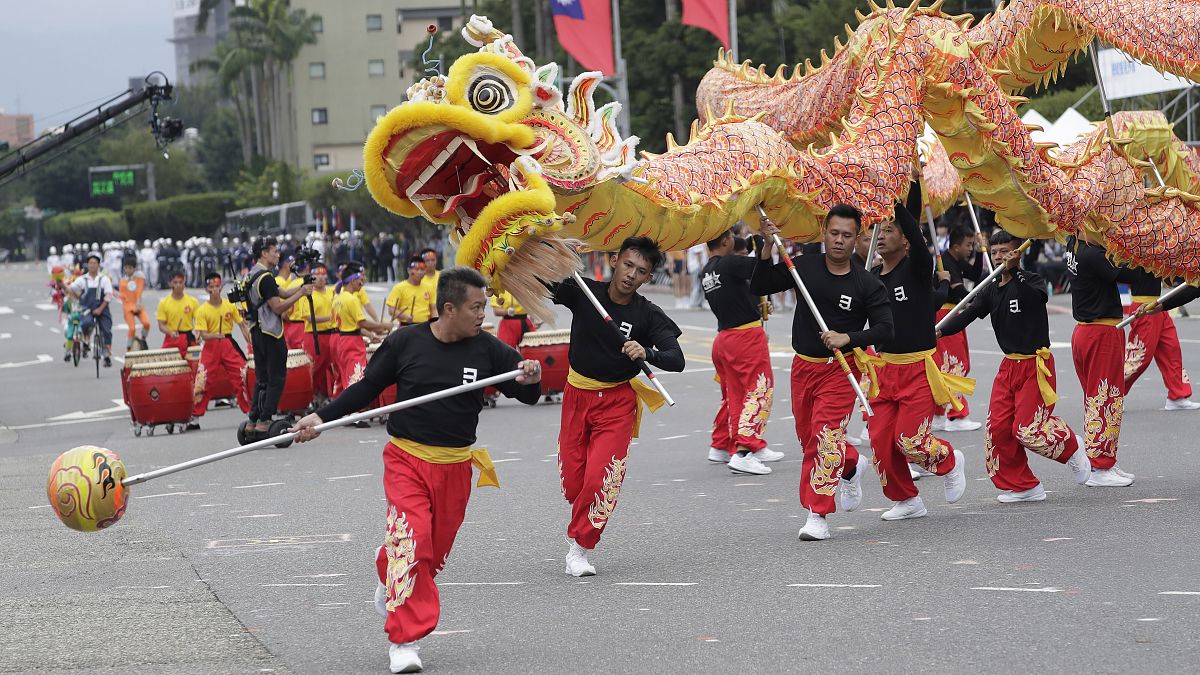Taiwan Celebrates National Day Amid Rising Tensions with China
Taiwan recently celebrated its National Day amidst escalating tensions with China, which claims the island as its own territory. President Lai Ching-te reiterated Taiwan’s independence, stating that China has no right to represent the country. He called on China to take responsibility on a global scale and work together with Taiwan to enhance regional and global peace, security, and prosperity. This celebration was notable for its lack of heavy military presence, focusing instead on speeches and performances.
President Lai Ching-te’s Assertion of Taiwan’s Independence
President Lai Ching-te made a bold statement during Taiwan’s National Day celebration, emphasizing the country’s independence from China. He stressed that Taiwan does not view China as its rightful representative and called on China to recognize Taiwan as a sovereign nation. This declaration further strained relations between the two nations, which have been at odds over issues of sovereignty and territorial disputes. President Lai Ching-te’s speech highlighted Taiwan’s commitment to its autonomy and campaign for international recognition.
Calls for Cooperation and Peace from Taiwan’s President
Despite the contentious relationship between Taiwan and China, President Lai Ching-te used the National Day celebration as an opportunity to extend an olive branch to the Chinese government. He urged China to fulfill its global responsibilities and collaborate with Taiwan to promote peace, security, and prosperity in the region and beyond. This message of cooperation and diplomacy suggests a willingness on the part of Taiwan to engage in dialogue with China and seek peaceful resolutions to longstanding conflicts. It remains to be seen how China will respond to this call for unity and collaboration.
The Atmosphere of Taiwan’s National Day Celebration
The National Day celebration in Taiwan was marked by a more subdued atmosphere, with a focus on cultural performances and speeches rather than an overt display of military force. This shift in tone may have been a deliberate choice by Taiwanese officials to emphasize peaceful intentions and a commitment to diplomatic solutions. The absence of a heavy military presence also reflects Taiwan’s desire to de-escalate tensions with China and promote a message of unity and harmony. By opting for a more low-key celebration, Taiwan may be signaling its openness to dialogue and cooperation with its neighbors.
The Implications of Taiwan’s National Day Celebration
The National Day celebration in Taiwan carries significant implications for the future of the island’s relations with China and the international community. President Lai Ching-te’s strong stance on Taiwan’s independence sends a clear message to China that Taiwan will not back down from its sovereignty claims. By calling for collaboration and peace, Taiwan is positioning itself as a responsible global actor willing to engage in dialogue and diplomacy. The peaceful and inclusive nature of the National Day celebration signals Taiwan’s commitment to resolving conflicts through peaceful means and underscores the country’s desire for stability and cooperation in the region.
Looking Ahead: Taiwan-China Relations in the Global Context
As Taiwan and China navigate their complex relationship, the National Day celebration serves as a microcosm of the broader challenges and opportunities facing the two nations. President Lai Ching-te’s speech and the tone of the celebration offer a glimpse into Taiwan’s strategic positioning and diplomatic priorities. By emphasizing cooperation, peace, and dialogue, Taiwan is signaling its commitment to resolving conflicts through peaceful means and promoting stability in the region. As tensions between Taiwan and China continue to escalate, the international community will be closely monitoring the developments and assessing the implications for global peace and security.











